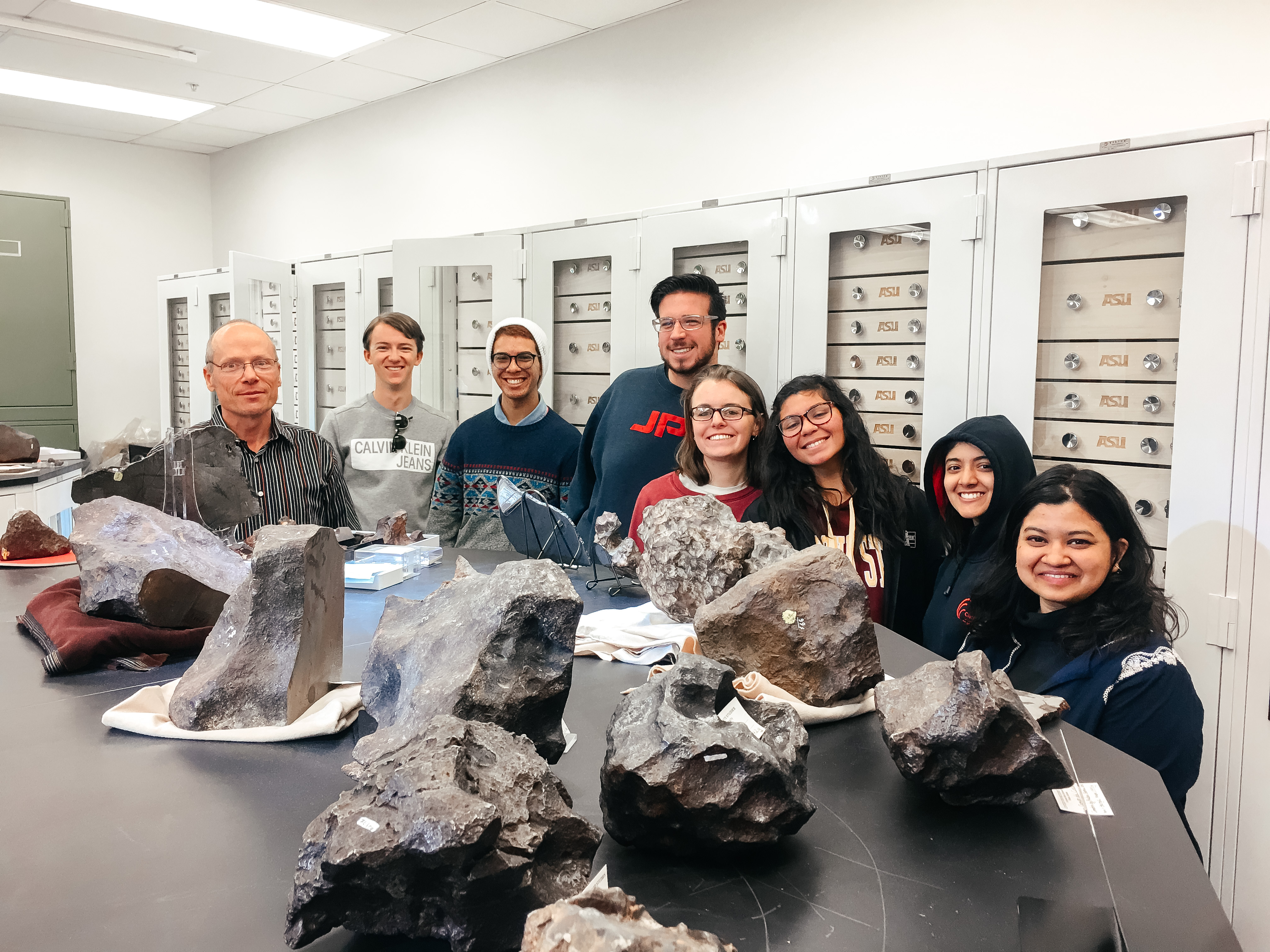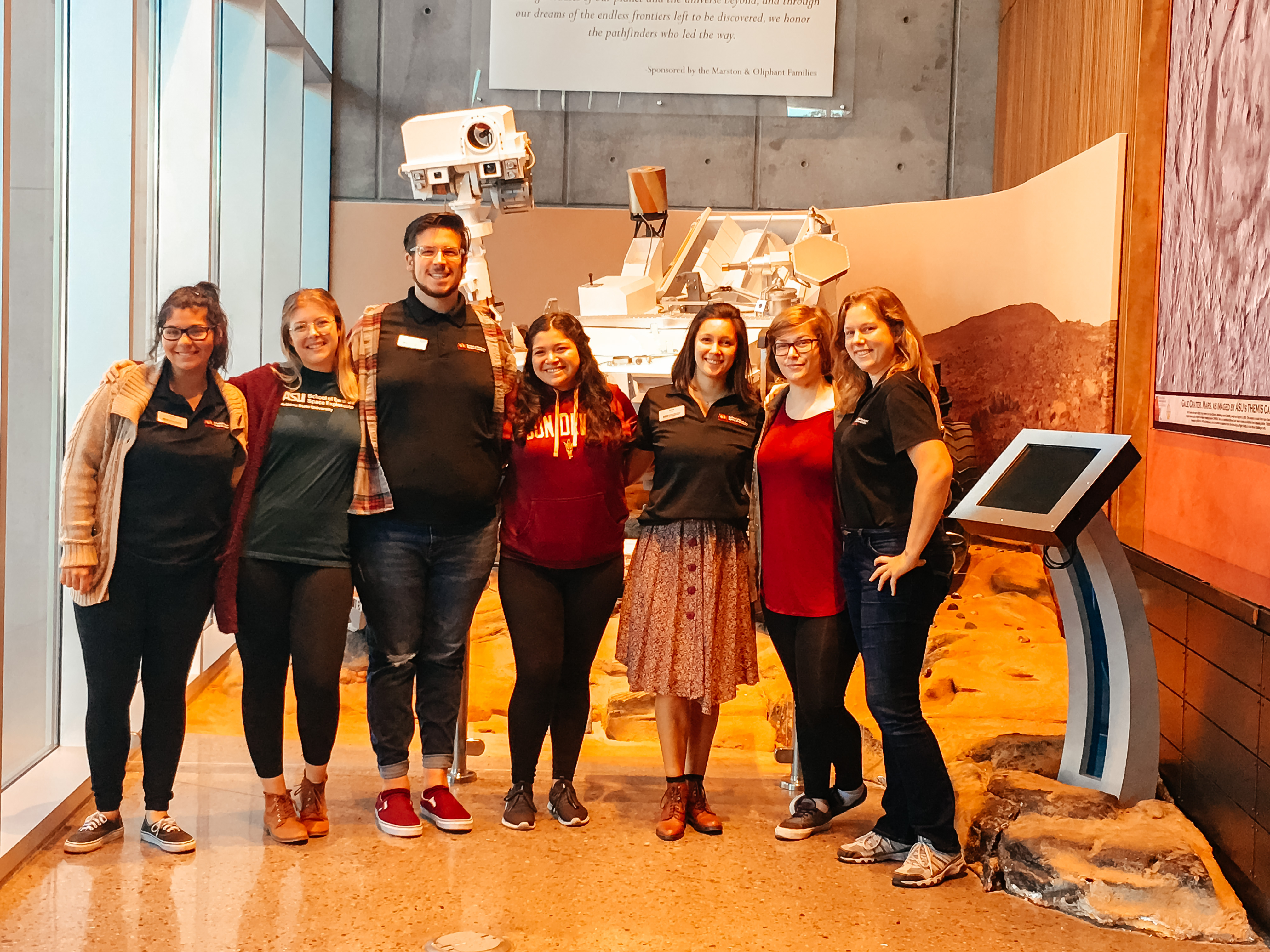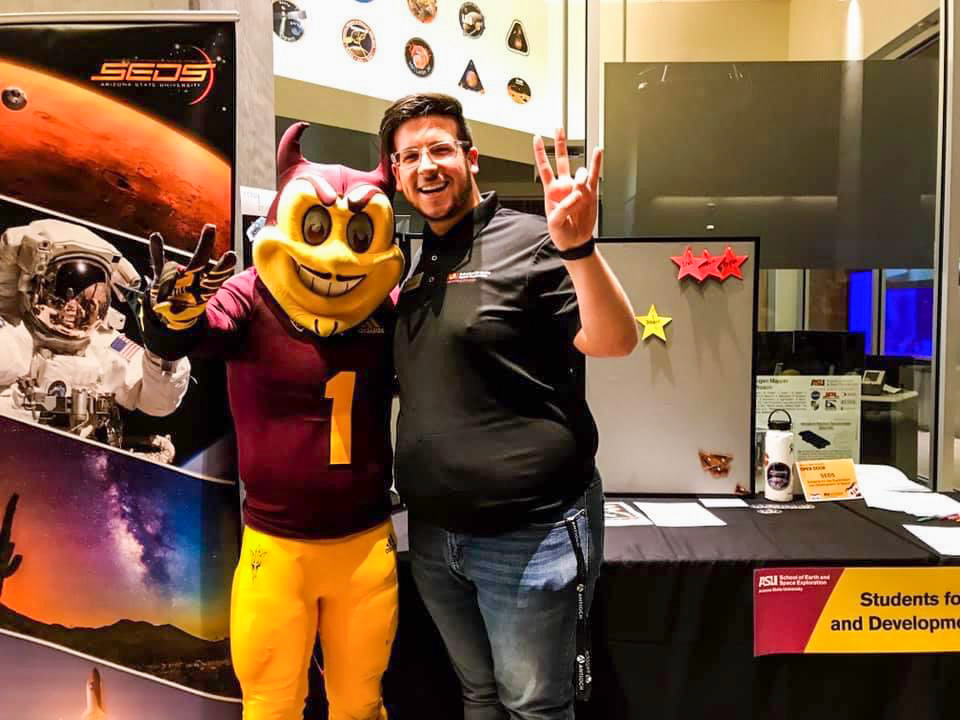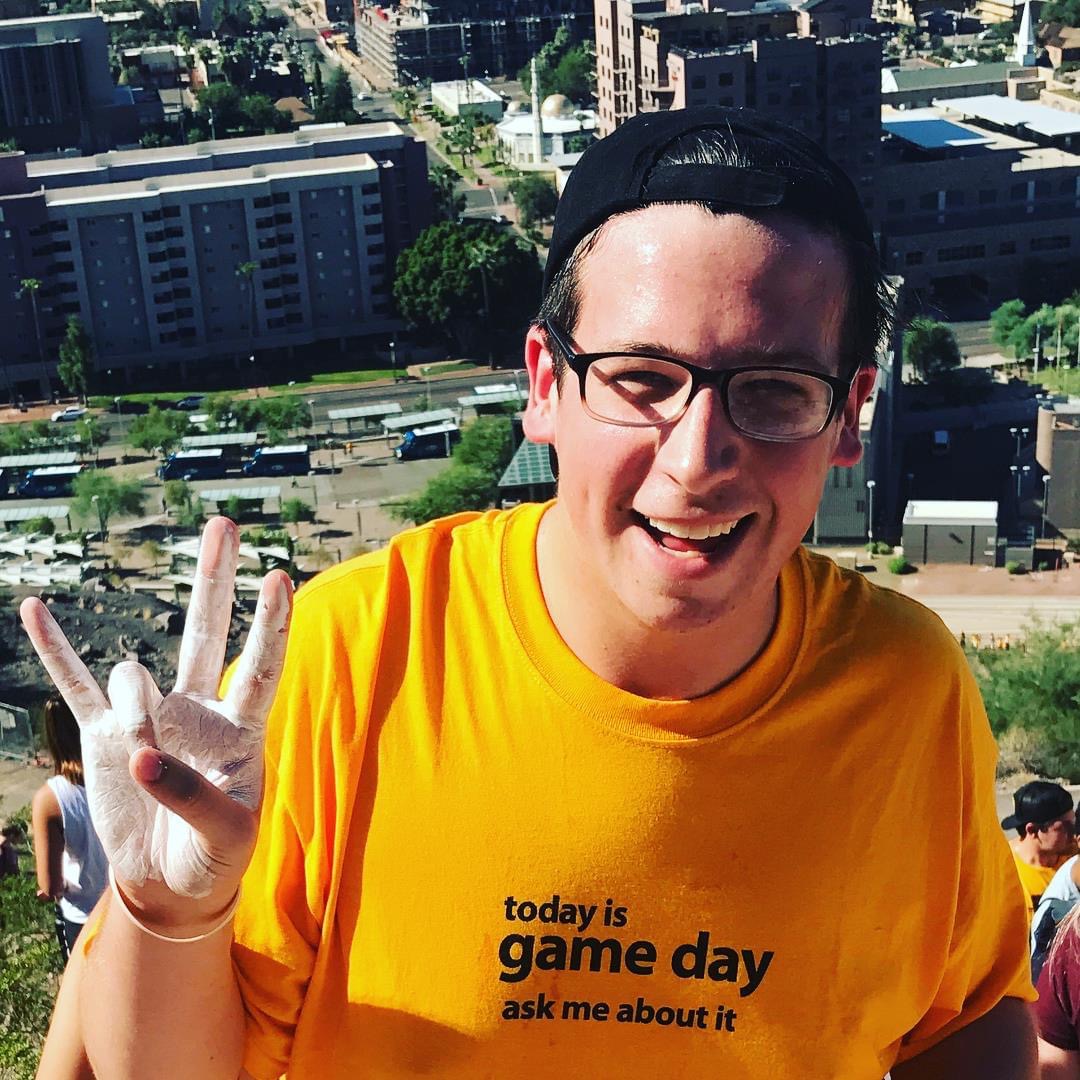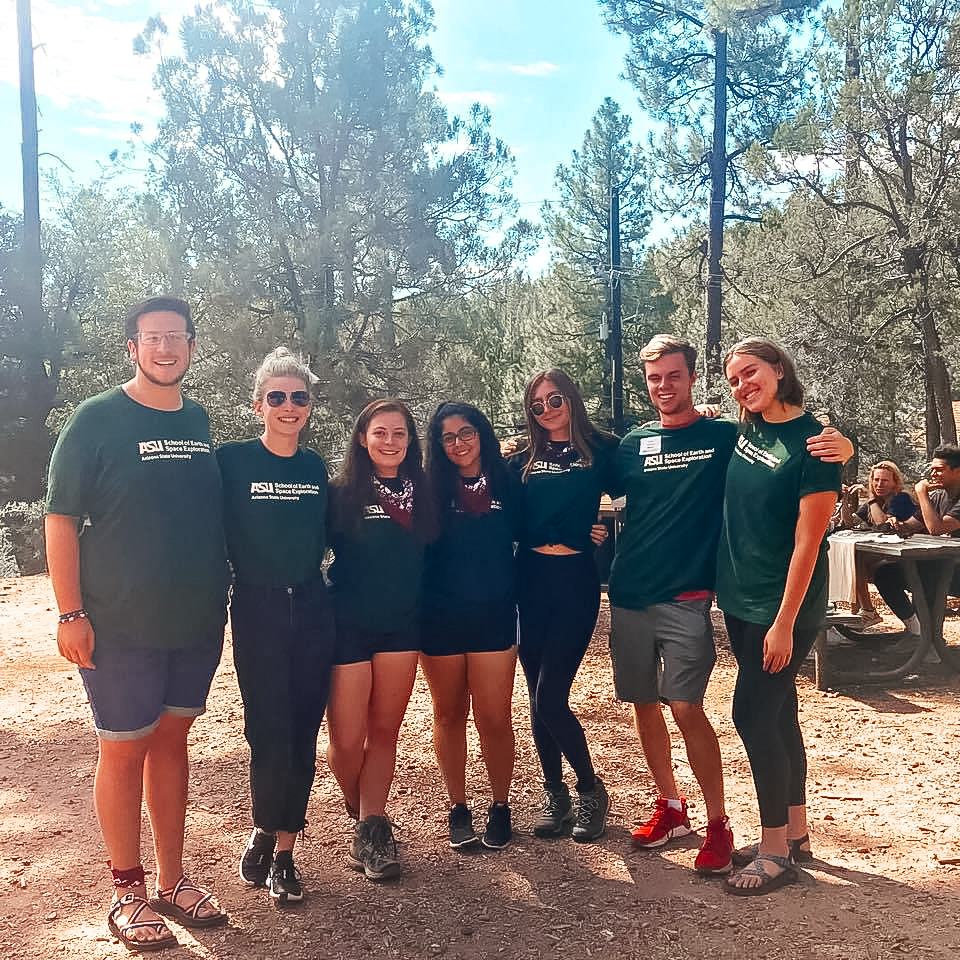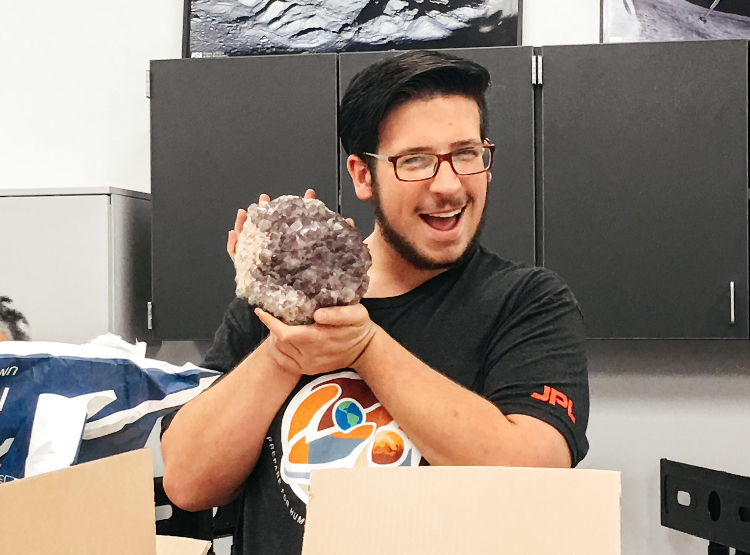First-gen grad pioneers his passion to earn dual degrees from ASU
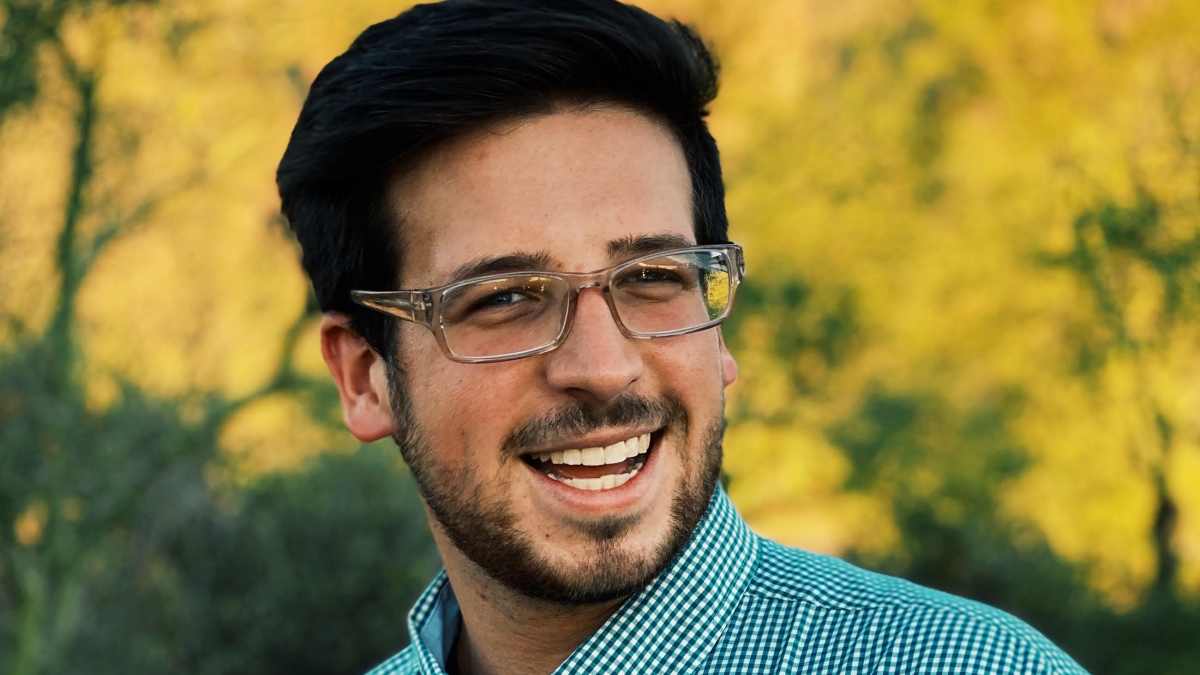
ASU graduate Stone Woodham.
Editor's note: This story is part of a series of profiles of notable spring 2021 graduates.
This spring, Stone Woodham will be the first in his family to graduate from a university, earning dual bachelor’s degrees — one in astrobiology and biogeosciences from the School of Earth and Space Exploration and the other in communication from the Hugh Downs School of Human Communication, along with a minor in religious studies from the School of Historical, Philosophical, and Religious Studies.
Woodham came to ASU with a desire and a drive to be an astrophysicist. This was a goal of his since the age of 12. In 2011, he watched in awe as the last crewed space shuttle launched from the United States.
“As I was pursuing this astrophysics route, I began to realize that I had a fascination with planets and chemistry and how space science gets communicated to the public,” Woodham said. “After this realization, I switched from astrophysics to astrobiology and added a communication major, along with a minor in religious studies.”
During his time at ASU, Woodham was involved with the ASU NASA Space Grant Intern program, the Students for the Exploration and Development of Space at ASU, served on the Student Affairs and Grievance Committee and was active with Antioch Community Church Student Ministries. Woodham was also a leader in several student organizations, receiving the Distinguished Leader Award for The College of Liberal Arts and Sciences for the 2019–2020 academic year.
In the classroom, Woodham brought determination and a passion for learning. It was in Professor Lindy Elkins-Tanton’s class that he learned the research skills to combine his communication and astrobiology and biogeosciences majors.
“Stone approached his work in our research class with a great enthusiasm and willingness to try, something not every student brings when faced with an open-ended, self-determined project,” said Elkins-Tanton, managing director and co-chair of the Interplanetary Initiative and principal investigator of the NASA Psyche mission. “He made great progress in learning the research skills of a graduate student while still an undergrad.”
Over the last four years, Woodham learned that the path to obtaining his degree could be nonlinear, and coming to ASU showed him the opportunity of interdisciplinary studies. It was something that changed his perspective about higher education and ASU.
“I have become an avid advocator for combining passions, even when it seems impossible,” said Woodham.
Woodham shared more about his experience at the School of Earth and Space Exploration.
Question: What was your “aha” moment when you realized you wanted to study the field you majored in?
Answer: My “aha” moment came my third semester at ASU in Physics 2 as I came to the conclusion that maybe physics wasn’t for me, but chemistry and planetary geology were. I also wanted everyone to know about space and the science that happens. So, my aha moment came sophomore year when I had the full realization that I could combine a natural science and a social science to create this blend of something unique and different.
Q: What’s something you learned while at ASU — in the classroom or otherwise — that surprised you or changed your perspective?
A: I would say that I have learned that it is OK to be a pioneer of something new. The image I get is synonymous to paving a sidewalk. Paving a sidewalk is hard for the individual who begins that process, but after it is finished, those who come behind get the ease of walking because you have put in the hard work and made it simple for them.
Q: Why did you choose ASU?
A: I chose ASU strictly out of opportunity and desire. I came in wanting an astrophysics degree, but I didn’t realize the opportunity that ASU could provide for me. My desire of obtaining a degree quickly shifted to the opportunity that ASU could offer. I got to experience this touring ASU and then immediately also got a taste of opportunity my first semester of college. Being a first-generation college student, opportunity was something I looked for as I chose where to go to school.
Q: Which professor taught you the most important lesson while at ASU?
A: He wouldn’t know this, but Craig Hardgrove is the professor who gave me the idea that I could pursue concurrent degrees in astrobiology and communication. He taught my first ever class (SES 100) at ASU. He was also in the process of proposing and reviewing the design of the cubesat LunaH-Map. He told the class that it was so vital that we as students develop this ability to communicate the science that we are doing. In addition to this, I think professor Lindy Elkins-Tanton walked this out in a very practical manner and encouraged me to continue pursuing this path as I got into my upper division classes.
Q: What’s the best piece of advice you’d give to those still in school?
A: If there is one thing that I would say to those in school, it would be to continue to pioneer. This time that you are in is a time of building a foundation. Once you establish this foundation you will continue building on it for the rest of your life in some capacity. You may build things that you never thought you would build. However, continue to pioneer the things that you are passionate about. I would also add to this that pioneering is not easy and often some people may come along and criticize you. However, this is your journey and not theirs. So, continue to pioneer your passions.
Q: What was your favorite spot on campus, whether for studying, meeting friends or just thinking about life?
A: This question is such an easy one for me to answer. It definitely has to be the third floor of ISTB4 otherwise known as the Crater Carpet. I enjoyed this space so much as I was able to decompress on the rocks of our solar system. It was a spot that I found myself many days studying and catching up with classmates and colleagues. Crater Carpet also reminded me of the work that I was doing and how significant it was. Also, who doesn’t love studying with friends, drinking a Dutch Bros Rebel together, and getting to tell them about the pictures of craters.
Q: What are your plans after graduation?
A: After graduation, I am staying local. I am a part of Antioch Community Church. The church has a nine-month discipleship school. This is my current plan after graduation. Once I have completed the discipleship school, I want to enter back into the academic realm and get a master’s degree in either science communication/science writing or astrobiology, which I hope to use in an industry/professional setting.
Q: If someone gave you $40 million to solve one problem on our planet, what would you tackle?
A: This is probably the hardest question to answer. If there is one problem that I would change, it would be accessibility to space education. So many people look at the night sky on a daily basis and just begin to wonder. They begin to ask the big questions that we at the School of Earth and Space Exploration are trying to answer, but they will never get to understand the fullness and vastness of the universe in the way in which I have come to learn and love it. Space education and science communication have given me a purpose that will impact generation after generation as we continue to marvel at our understanding of life and the universe.
More Science and technology

Hack like you 'meme' it
What do pepperoni pizza, cat memes and an online dojo have in common?It turns out, these are all essential elements of a great…

ASU professor breeds new tomato variety, the 'Desert Dew'
In an era defined by climate volatility and resource scarcity, researchers are developing crops that can survive — and thrive —…

Science meets play: ASU researcher makes developmental science hands-on for families
On a Friday morning at the Edna Vihel Arts Center in Tempe, toddlers dip paint brushes into bright colors, decorating paper…


